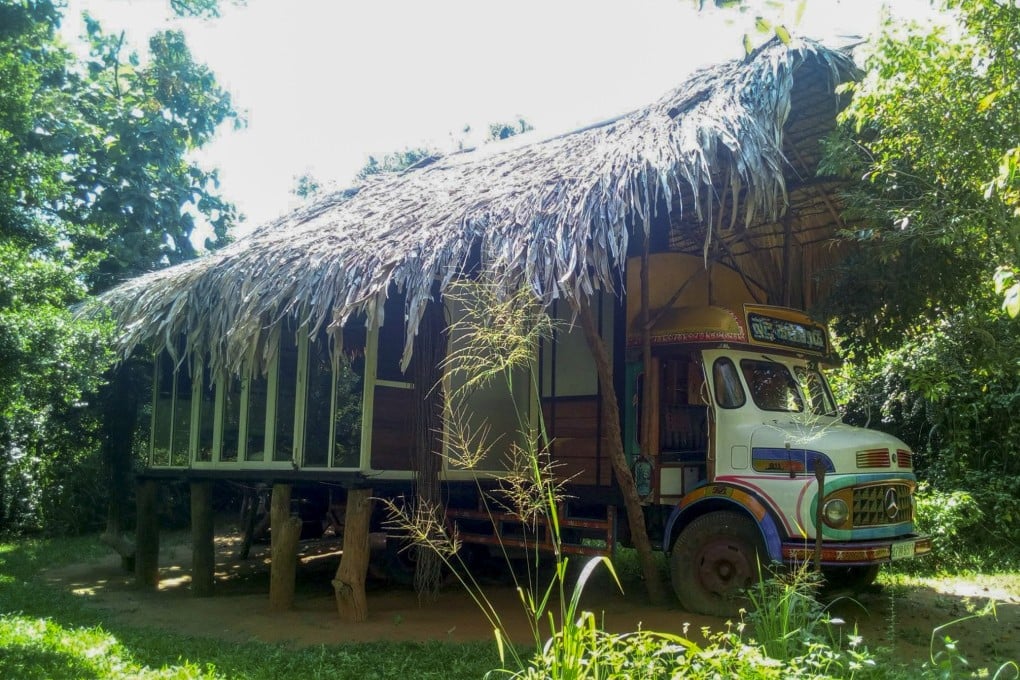How sustainable tourism in Sri Lanka is taking off at eco-retreats as the country’s economic crisis forces a new approach
- Away from the tourist magnets on Sri Lanka’s coast, economic realities are prompting eco-retreats to pioneer sustainable tourism
- Very few places can compete with the biodiversity of Sri Lanka and small retreats and private villas allow guests to become immersed in it

A sinister two-metre-tall, horse-headed Hindu deity illuminated by the flickering flames of an open fire provides an unorthodox sense of arrival at a jungle eco-retreat in Sri Lanka’s remote southern interior.
A young woman creates hypnotic melodies on a handpan, a metal musical instrument. Toque macaques screech from branches overhanging the thatched-roof shack that serves as the guest reception zone. An enormous monitor lizard ambles past with an exaggerated swagger.
The tourism industry is struggling in Sri Lanka but you would hardly know it here, at mystical Banyan Camp.

Hong Kong’s Security Bureau still has an amber Outbound Travel Alert notice in force for Sri Lanka and although visitor numbers are now picking up, they are only about one-third of pre-pandemic levels.
With climate breakdown becoming ever more apparent, Banyan Camp offers hope for a more sustainable future, but has its roots in a previous pandemic.
